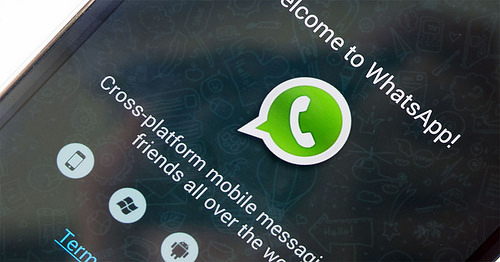When I first signed up for WhatsApp, I got a message that I was going to be paying $0.99 every year after the first year. Three years have passed, I’m yet to pay a dime. And this is not an error or negligence on their path. It’s just that the model has never really worked well for them.
Apparently, WhatsApp is now free. Have you ever paid for Whatsapp?
— TechCabal (@TechCabal) January 18, 2016
Even the company admitted today, “As we’ve grown, we’ve found that this [yearly subscription] approach hasn’t worked well. So over the next several weeks, we’ll remove fees from the different versions of our app and WhatsApp will no longer charge you for our service.”
Even though WhatsApp’s annual 99 cent fee only applies to some countries, it was never fully enforced. The question now is, how are they going to keep WhatsApp running without subscription fees? Also, it makes one wonder if they will introduce ads.
WhatsApp, despite now having close to 1 billion users, has never been pro-advertising. Jan Koum and Brian Acton were more concerned with creating a platform for people to communicate than a platform where they could sell ads to them.
Jan wrote in 2012 that “advertising isn’t just the disruption of aesthetics, the insults to your intelligence and the interruption of your train of thought. At every company that sells ads, a significant portion of their engineering team spends their day tuning data mining, writing better code to collect all your personal data, upgrading the servers that hold all the data and making sure it’s all being logged and collated and sliced and packaged and shipped out… And at the end of the day the result of it all is a slightly different advertising banner in your browser or on your mobile screen.”
So selling ads on the Facebook-owned platform was never in the picture.
According to the statement released on the WhatsApp blog – yes, they have a blog – “Starting this year, we will test tools that allow you to use WhatsApp to communicate with businesses and organizations that you want to hear from. That could mean communicating with your bank about whether a recent transaction was fraudulent, or with an airline about a delayed flight.
This new approach is similar to that taken by Facebook’s Messenger app where users will have the opportunity to directly interact with businesses. For example, Facebook’s partnership with Uber now all means Messenger users can hail Uber rides from the app.
For the folks who have already paid the subscription fee for this year, there will be no refund. Hey, on the brighter side, you never have to fork out a humongous 99 cents for WhatsApp again. Isn’t that cool?











